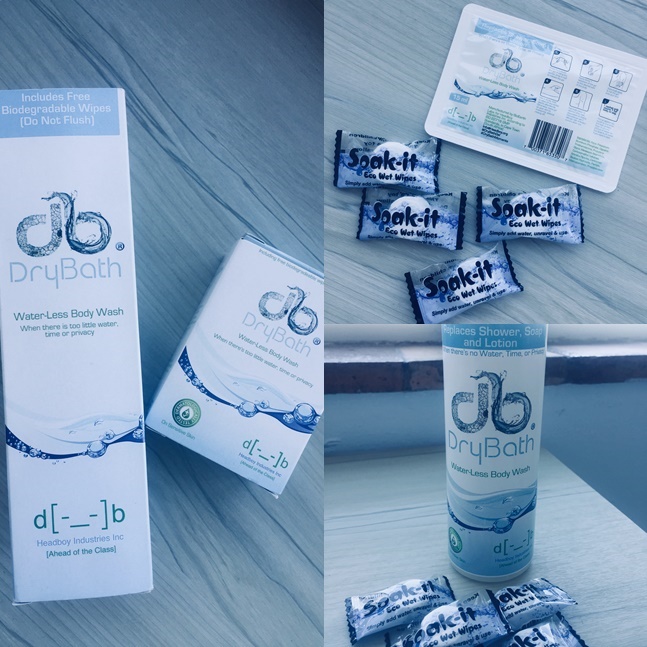Could you imagine cleaning yourself properly without using any water? I am guessing probably not, and neither could I.
I recently found a product created by a young South African named Ludwick Marishane. Marishane created body wash called DryBath. After growing up in rural Limpopo where most people only had the option of a bucket bath, he hoped that his product would bring some relief to his community. See his TED talk here.
Initial concerns
Initially I was concerned that the consistency would be sticky, there would be a residue left on my skin and that I would still feel dirty afterwards. Also, there are few things as bad as the combination of body odour and deodorant trying to mask it. My hope was that DryBath would leave me feeling and smelling fresh.
I tried the product over a weekend to avoid any possible embarrassment if the product didn’t work, and after two days trialling DryBath, I can gladly say there was none.
Waterless washing
The DryBath gel comes in a 250ml bottle with fifteen wipes, as well as a box of seven 15ml gel sachets with seven wipes.
DryBath has a fresh herbal aroma with a hint of tea tree oil that it is not overbearing. This was a good indication for me because, as Health24 explains, tea tree oil is known for being antibacterial, antiviral and antifungal. The gel includes naturally derived Potash Alum (Dode), also known as Tawas, and is an odour-removing rock commonly used in India. There is no alcohol in DryBath.
The gel spreads across a very wide surface area, therefore 15ml could possibly clean an entire adult as DryBath claims. I however would suggest that it is more suitable for a small adult. The gel also moisturises well, and I didn’t feel dry or sticky after using it.
The wipe that accompanies the gel only needs four tablespoons (60ml) of water to open and become sufficiently damp. The non-flushable wipes are 100% cotton and biodegradable, so they can be binned or composted.
The wipe is useful and I used it in conjunction with the gel each time I “washed”, especially to reach those harder to clean bits. (DryBath has also been dermatologically tested for use on sensitive skin, so it can be used on genitals.) I found that any residue dried quickly enough, and once dry my skin felt clean and moisturised.
My waterless cleaning ritual for the two days was a good experience; however there is nothing like a real water shower – but in the light of needing to save water, using DryBath on the odd occasion is not a bad alternative.
Note that DryBath body wash cleaned my body but I used water to wash my hair and face.
The 250ml bottle of DryBath gel is currently retailing for R349,79 and the box of DryBath gel sachets are sold for R321,24.
For more information visit the DryBath website.
Image credits: iStock and Tarryn Temmers












